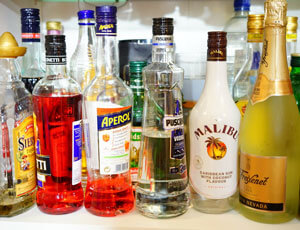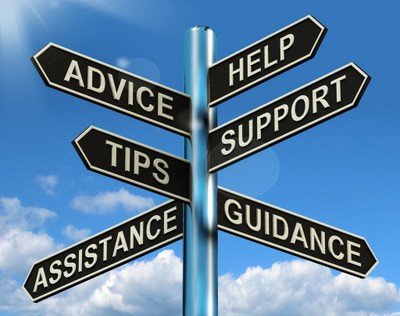 By Laura Morrison-Roets, EdD, PhD, CTRS/L, LADC, CRAADC/Supv., CM III, NAP Project Coordinator, Cox Health
By Laura Morrison-Roets, EdD, PhD, CTRS/L, LADC, CRAADC/Supv., CM III, NAP Project Coordinator, Cox Health
Many times, issues surrounding drinking alcohol deal with individuals who are affected by alcohol use disorder and may or may not, need treatment. The purpose of this article is to assist in understanding how many parts of one’s life can become better when less alcohol is consumed.
There is a misconception that drinking before bed will help one sleep. Granted, it may help a person to fall asleep faster and deeper for a short period of time, but alcohol actually decreases REM sleep. REM is an acronym for “rapid eye movement.” REM typically occurs approximately 90 minutes into sleep and is the state in which most people begin to dream. When one has reached this level of sleep, it is considered to be restorative. Unfortunately, alcohol disrupts this state and the result can be drowsiness and a lack of concentration during one’s awake time.
When a person gets better sleep, they also tend to make better eating choices. When a body gets less sleep, it tends to shift from eating healthy carbs to eating fats.
Since alcohol inhibits quality sleep, it is estimated that for each 30 minutes lost, the individual imbibing, eats 83 extra calories. If one calculates that amount per month, he/she could gain approximately 1 ½ pounds and will have consumed about 5000 extra calories. So, that also means that if you have been drinking, it is very possible that through cessation of alcohol, you could also lose that amount.
Other issues that may occur include:
- Sleep apnea – alcohol relaxes the throat muscles during sleep
- Epinephrine is a stress hormone which increases the heart rate and stimulates the body. The epinephrine level rises from alcohol consumption, causing the individual to wake up more frequently.
- Alcohol is a diuretic and when one drinks before bed, he/she will need to urinate more often.
Dehydration occurs when drinking. Because alcohol slows the body’s production of the anti-diuretic hormone, a number of things can occur. Without replenishing body water, skin can be affected. This can result in aging/wrinkling, dandruff, eczema, and/or rosacea. These can start reversing/abating within just a few days of abstinence.
Dehydration can also affect one’s muscles, causing muscle cramping, in addition to possible nausea, headaches, dizziness, lowered metabolic rate, and again, sluggishness and poor concentration.
Society is becoming more diet-conscious. A couple of misnomers are that substituting alcohol for food, or drinking beer because of the amount of vitamins, will help one to lose weight. However, it has been found, that those who drink, eat as much as 11% more than those who don’t, and that the diet is more high-fat concentrated. Alcohol tends to tell the brain that the body is starving.
Caloric intake for drinks is high and can range from 60 calories minimum in a lite beer, for example, to 200 in a regular beer or margarita. Moderate drinkers don’t typically stop with one drink, but may consume two or more, thus increasing that empty caloric intake. Once one drinks, the liquid typically doesn’t satisfy hunger, so he/she eats more, gets sluggish, lethargic, becomes less active, and/or may miss workouts; none of which is great for weight loss.
Unfortunately, alcohol intake slows digestive processes. When this occurs, it can lead to the build-up of fat in the liver. When fats are held in the liver, it can lead to liver damage, liver disease, and/or diabetes. Abstaining from alcohol for just one month has been seen to drop liver fat up to 20% and to drop blood glucose levels by as much 16%.
Cholesterol isn’t found in beer or hard liquor, but in sweetened drinks, which contain sugars/carbohydrates and alcohol. These substances can raise triglyceride levels, which can raise the possibility of heart attacks for those who drink more than moderately, and with more frequency than a moderate drinker.
The less one drinks, the less the risk for many forms of cancer. The National Cancer Institute states that by simply changing a high-carb/high-fat diet, such as one filled with fast foods, to one with snacks and meals that are high in fiber, such as fruits, vegetables, and legumes, you will be much healthier.
There are ten types of cancer associated with alcohol consumption; oropharynx, larynx, esophagus, liver, colon, rectum, breast, skin, prostate, and pancreas. The Addiction Journal reported that “There is more than enough credible evidence to conclusively state that drinking alcoholic beverages is a direct cause of these different cancers,” and that “even people consuming low to moderate amounts seem to be at risk.”
The American Heart Association has shown that drinking alcohol can increase health dangers such as high blood pressure, obesity, and strokes, by raising triglyceride levels. However, it is not all doom and gloom, as studies also show that those who drink in moderation, have a lower incidence of heart disease than do non-drinkers.
Drinking can cause issues at work. Studies show that individuals who have quit drinking for 30 days, can have as much as an 18% increase in concentration and a 17% a performance boost. This is also reflected in a decrease in time taken for sick leave, reduced conflicts with peers, negative attitudes, numbers of accidents and injuries, and the lowering of insurance costs.
Last, sex when drinking, can cause a myriad of issues. Alcohol can lessen inhibitions, which can lead to unprotected sex; alcohol also causes dehydration and lowered blood flow, resulting in erectile dysfunction in some; and drinking can possibly make one or both partners more aggressive than when they are sober.
So…what are some of the things you can do if you choose to drink? Some suggestions offered by multiple sources are:
- SLOW down! If you are drinking more than you should, you might consider taking a break or abstaining for thirty days. See how you feel and see if some of the issues begin to resolve themselves (ex., weight loss, healthier eating patterns, better sleep, more energy, overall better health, better attitude);
- HYDRATE! Be sure to drink a lot of water;
- Increase fruit and fibrous vegetable intake;
- When drinking, try swapping some of your drinks for water or a mocktail, use smaller glasses, and/or smaller drink portions;
- Be careful not to substitute one high calorie habit with another if you slow down or abstain. It is very easy to eat junk food or candies such as chocolate as a substitute; and
- If you aren’t working out at a gym or in a regular routine of some sort, try taking a walk, going on a hike, gardening, riding a bike, or perhaps dancing. For some people, calming activities such as Tai Chi, yoga, or meditation work.
Any of these will help get your body back into shape, boost your metabolism, and help you to feel better overall.

